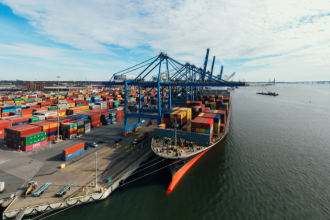The UK Secretary of Business outlined a sharp political ambition to convert diplomatic success into concrete outcomes following the recent State Visit. He emphasized the importance of the newly established economic partnership with the United States, targeting key sectors including automotive, steel, aluminium, aerospace, and agriculture. The government aims for recently pledged investments to translate into jobs, increased production, and deeper commercial integration.
Part of this strategy centers on strengthening institutions on both sides of the Atlantic, using the diplomatic spotlight to unblock regulatory barriers that have hindered capital flows. The Secretary stressed that the Technology Prosperity Deal between the two nations is not merely symbolic but should deliver more resilient businesses, innovation, and employment. This political maneuver is intended to demonstrate to voters that foreign policy can yield visible domestic economic returns.
Attracting foreign investment has taken a central position in the government’s agenda. The address mentioned plans for allocating resources to infrastructure, science, biotechnology, and energy with special priority. Particularly, the expectation that large companies will announce expansion plans reinforces the belief that public‑private partnerships may accelerate growth in underdeveloped regions and reduce territorial inequalities.
Diplomatic economic engagement is being leveraged to enhance the UK’s global credibility as a reliable place to do business, characterized by stable rules, legal certainty, and long‑term investment. The political legitimacy of these initiatives hinges on delivering visible results for citizens and the productive sector.
Internally, this moment requires the government to deftly navigate legislative reforms, regulatory changes, and budget allocations that will follow through on its promises. Opposition parties and MPs are scrutinizing for tangible improvements in local economies, job creation, and life quality. The ability to produce evident policy outcomes may have strong influence on future electoral assessments.
Another political challenge is maintaining cohesion across ministries, local governments, and the private sector. Effective execution of the announced measures demands coordination, oversight, and institutional commitment. Without these, diplomatic pledges risk being lost in bureaucracy or dismissed as mere rhetoric.
In the global comparison space this kind of political‑diplomatic strategy may position the UK as a model of how State Visits can be leveraged to drive business, innovation, and cooperation. Other nations watch closely how foreign policy and economic policy can be more assertively integrated, especially in a context of international competition for capital, talent, and technology innovation.
In summary the period following the State Visit represents a rare political opportunity to convert symbolic international engagement into industrial, technological, and commercial gains. The UK government bets on the idea that visibility will translate into real gains. Success will depend on the ability to deliver on commitments, execute agendas effectively, and sustain credibility with citizens.
Author: Clodayre Daine









